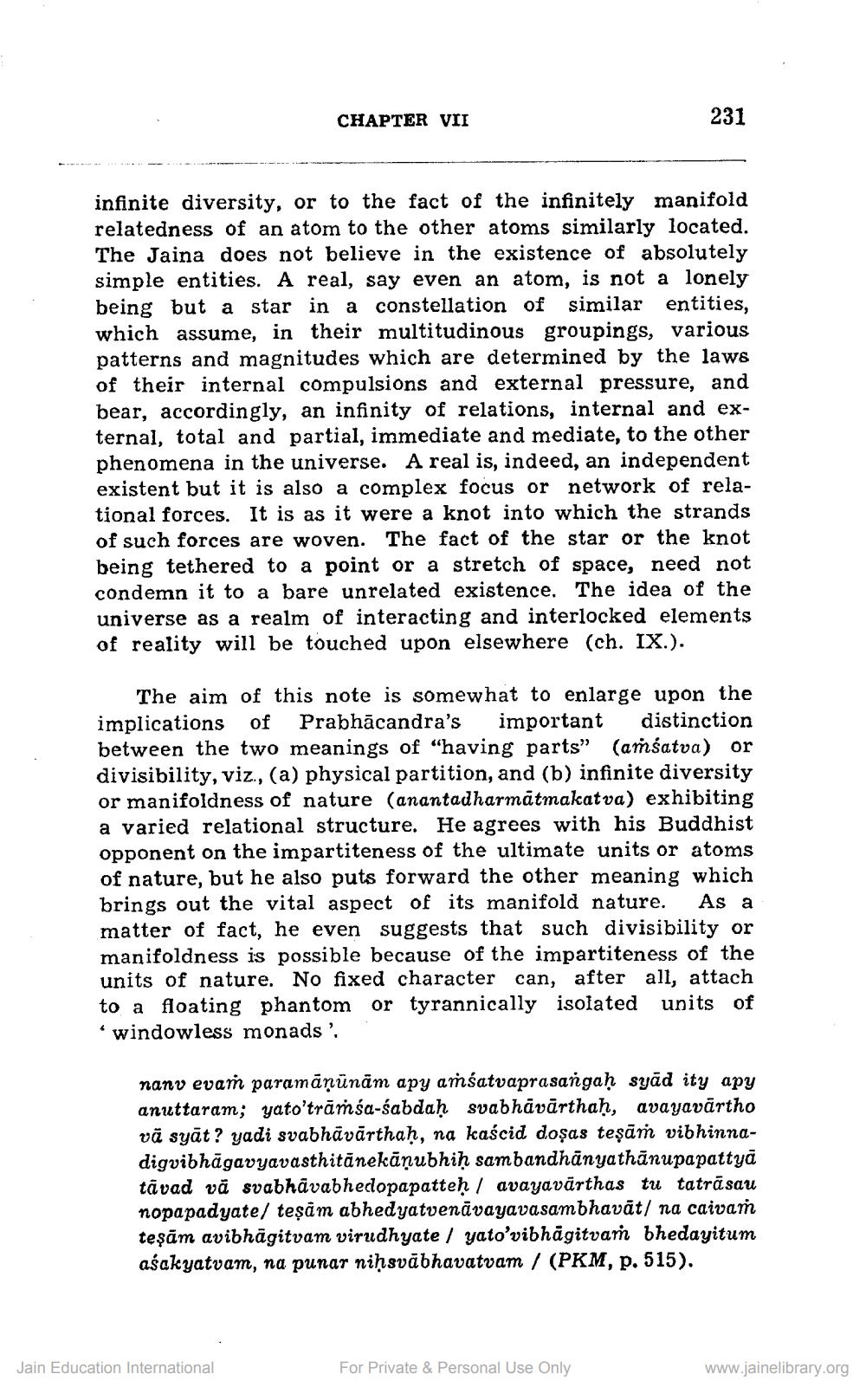________________
CHAPTER VII
infinite diversity, or to the fact of the infinitely manifold relatedness of an atom to the other atoms similarly located. The Jaina does not believe in the existence of absolutely simple entities. A real, say even an atom, is not a lonely being but a star in a constellation of similar entities, which assume, in their multitudinous groupings, various patterns and magnitudes which are determined by the laws of their internal compulsions and external pressure, and bear, accordingly, an infinity of relations, internal and external, total and partial, immediate and mediate, to the other phenomena in the universe. A real is, indeed, an independent existent but it is also a complex focus or network of relational forces. It is as it were a knot into which the strands of such forces are woven. The fact of the star or the knot being tethered to a point or a stretch of space, need not condemn it to a bare unrelated existence. The idea of the universe as a realm of interacting and interlocked elements of reality will be touched upon elsewhere (ch. IX.).
231
The aim of this note is somewhat to enlarge upon the implications of Prabhācandra's important distinction between the two meanings of "having parts" (amsatva) or divisibility, viz., (a) physical partition, and (b) infinite diversity or manifoldness of nature (anantadharmatmakatva) exhibiting a varied relational structure. He agrees with his Buddhist opponent on the impartiteness of the ultimate units or atoms of nature, but he also puts forward the other meaning which brings out the vital aspect of its manifold nature. As a matter of fact, he even suggests that such divisibility or manifoldness is possible because of the impartiteness of the units of nature. No fixed character can, after all, attach to a floating phantom or tyrannically isolated units of 'windowless monads '.
Jain Education International
nanv evam paramāņūnām apy aṁśatvaprasangaḥ syad ity apy anuttaram; yato'trāṁśa-sabdaḥ svabhāvārthaḥ, avayavārtho vä syāt? yadi svabhāvārthaḥ, na kaścid dosas teṣām vibhinnadigvibhāgavyavasthitānekāņubhiḥ sambandhanyathanupapattyä tavad va svabhāvabhedopapatteḥ/ avayavārthas tu tatrā sau nopapadyate/ teşăm abhedyatvenāvayavasambhavat/ na caivam teşām avibhāgitvam virudhyate/ yato'vibhagitvam bhedayitum aśakyatvam, na punar niḥsvabhavatvam / (PKM, p. 515).
For Private & Personal Use Only
www.jainelibrary.org




